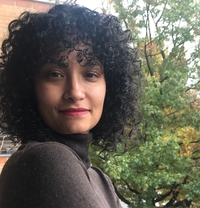Intro: "...What you’re watching in Riotsville is what we would now couch under the idea of police reform, which is they are trying to correct for some of the abuses that happened by police in 1967 by undergoing this training and coordination among departments.
“That is also a very helpful illustration of the limits and falsity of the idea of police reform, because police reform often is just a way of increasing funding for police. ‘If we just train them better, then they’ll get better and, in order to train them, we have to funnel more money to them.’
✓
Riotsville, USA: the shocking story of fake army towns that militarised police
“Welcome to Riotsville,” says a raincoat-clad ABC news correspondent with a noisy, placard-waving crowd and row of what appear to be shops behind him. “This is a simulated riot in a simulated city. But as another summer approaches, it might be Anywhere, USA.”
The news clip resurfaces in Riotsville, USA, a documentary about the stagecraft of state coercion. It tells how the army built fake towns, or “riotsvilles”, on its bases and used soldiers as actors to stage huge theatrical re-enactments of civil unrest. The military response was filmed to help with the training of law enforcement.
It sounds like a dark sequel to The Truman Show or the creepy, mannequin-filled mock towns used for nuclear tests in the 1950s. The riotsvilles were buried in obscurity for half a century until Sierra Pettengill, an archival researcher and film-maker, read about them in Nixonland, historian Rick Perlstein’s book about the tumultuous 1960s and 1970s.
“I immediately looked to see what I could find, which was very little, and then eventually found a record in the National Archives that sounded about right and got that film transferred and sent over,” the director of Riotsville, USA recalls via Zoom from Brooklyn, New York.
“I then began a long process of trying to contextualise what this meant – literally within a historical context, but also where this fits in a metaphorical sense in how America treats race and equality, what choices it makes for allocation of resources, and the eternal loop we seem to be on.”
There was not an official campaign to cover up the
riotsvilles, a response to uprisings against racial injustice (“race
riots” in the parlance of the time) and protests against the Vietnam war. They seem to have fallen into the shadows because of collective amnesia. They had been hiding in plain sight all this time. . .
“What you’re watching in Riotsville is what we would now couch under the idea of police reform, which is they are trying to correct for some of the abuses that happened by police in 1967 by undergoing this training and coordination among departments.
“That is also a very helpful illustration of the limits and falsity of the idea of police reform, because police reform often is just a way of increasing funding for police. ‘If we just train them better, then they’ll get better and, in order to train them, we have to funnel more money to them.’ Money just ends up in more arrests so Riotsville is helpful.
“In terms of resources, this is a moment where the idea of the federal government funding local police departments is largely purchased. There had been lots of white riots prior to the 1960s and the kind of financial will did not exist in the same way.”
Campaigns to defund the police surged after the death of Floyd but provoked an inevitable backlash and are now seen by many Democrats as politically toxic. Joe Biden has repeatedly distanced himself from the movement, insisting that the police must be funded, not defunded.
But Pettengill argues: “The film to me is a very good argument for defunding the police. We’re not in some particular policy pickle that we can just fund our way out of. It is deeply, darkly broken and by design. The film is illustrating that design. It is watching a system get constructed.”
✓ IDA ENTERPRISE DOCUMENTARY FUND GRANTEE
DIRECTOR(S):✓ Videos
RELATED
Film Forum · Q&A with RIOTSVILLE, U.S.A. Director Sierra Pettengill, Writer Tobi Haslett & Badges Without Borders Author Stuart Schrader
Sunday, September 18
2:45
 Sierra Pettengill’s work focuses on the warped narratives of the American past. Most recently, she directed the archival short The Rifleman,
which premiered at the 2021 Sundance Film Festival. Her 2017
feature-length film, the all-archival documentary THE REAGAN SHOW,
premiered at the Locarno Film Festival before airing on CNN. She
directed the ‘Big Dan’s Tavern’ episode of the Netflix series Trial By Media about the first televised rape trial in the U.S. Her 2018 all-archival short film, Graven Image,
aired on POV and is held at the Legacy Museum in Montgomery, Alabama.
In 2013 she produced the Academy Award-nominated film CUTIE & THE
BOXER, which also won an Emmy Award for Best Documentary, and
co-directed (with Jamila Wignot) TOWN HALL, about the emergent Tea Party
movement, for PBS. She has also worked as an archival researcher for
many artists including Jim Jarmusch and Adam Pendleton. She was a
Sundance Institute Art of Nonfiction Fellow, a fellow at the Yaddo and
MacDowell colonies, and is a board member of Screen Slate.
Sierra Pettengill’s work focuses on the warped narratives of the American past. Most recently, she directed the archival short The Rifleman,
which premiered at the 2021 Sundance Film Festival. Her 2017
feature-length film, the all-archival documentary THE REAGAN SHOW,
premiered at the Locarno Film Festival before airing on CNN. She
directed the ‘Big Dan’s Tavern’ episode of the Netflix series Trial By Media about the first televised rape trial in the U.S. Her 2018 all-archival short film, Graven Image,
aired on POV and is held at the Legacy Museum in Montgomery, Alabama.
In 2013 she produced the Academy Award-nominated film CUTIE & THE
BOXER, which also won an Emmy Award for Best Documentary, and
co-directed (with Jamila Wignot) TOWN HALL, about the emergent Tea Party
movement, for PBS. She has also worked as an archival researcher for
many artists including Jim Jarmusch and Adam Pendleton. She was a
Sundance Institute Art of Nonfiction Fellow, a fellow at the Yaddo and
MacDowell colonies, and is a board member of Screen Slate.
 Tobi Haslett is a writer who has written about art, film, literature and politics for The New Yorker, Artforum, Harper's, and elsewhere. He penned the introduction to Horse Crazy (1989), a novel by Gary Indiana reissued in 2018, and Nothing But the Music,
a collection of poems by Thulani Davis forthcoming from Blank Forms in
2020. Tobi’s essays have appeared in the exhibition catalogues for
Radical Visions: Reza Abdoh (MoMA PS1, 2018) and Martin Puryear's U.S.
Pavilion exhibition at the 59th Venice Biennale. He lives in New York.
Tobi Haslett is a writer who has written about art, film, literature and politics for The New Yorker, Artforum, Harper's, and elsewhere. He penned the introduction to Horse Crazy (1989), a novel by Gary Indiana reissued in 2018, and Nothing But the Music,
a collection of poems by Thulani Davis forthcoming from Blank Forms in
2020. Tobi’s essays have appeared in the exhibition catalogues for
Radical Visions: Reza Abdoh (MoMA PS1, 2018) and Martin Puryear's U.S.
Pavilion exhibition at the 59th Venice Biennale. He lives in New York.
.
.
Stuart Schrader is a scholar of policing, empire, war, and radical movements to challenge them. He is the author of Badges Without Borders: How Global Counterinsurgency Transformed American Policing,
published in 2019. Schrader is currently at work on a new book about
the rise of the police as unique political actors in the United States,
examining the history of police unionism after the Civil Rights
Movement. His articles have been published widely, in Artforum, The Baffler, Harvard Design Magazine, n+1, The Nation, The Washington Post, and many other venues.
✓
.jpg)

.jpg)
.jpg)
.jpg)
.jpg)
 Sierra Pettengill, Director
Sierra Pettengill, Director Sara Archambault, Producer
Sara Archambault, Producer Jamila Wignot, Producer
Jamila Wignot, Producer
No comments:
Post a Comment